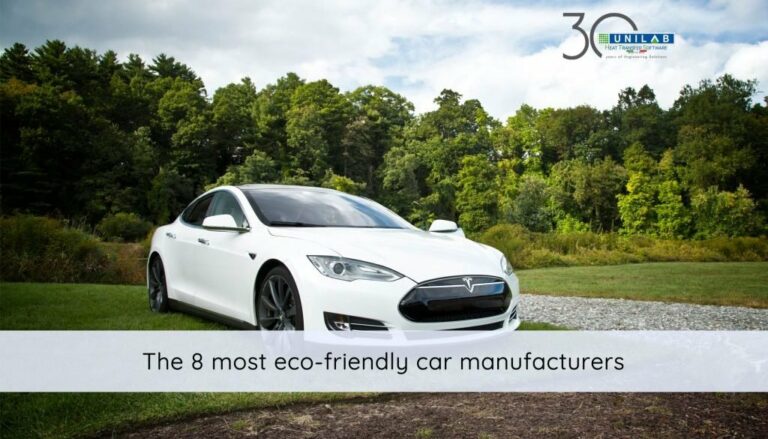Top 10 List of Alternative Fuel Vehicles: A Comprehensive List
Looking for a List of Alternative Fuel Vehicles? Well, you’re in the right place! In this article, we have you covered with an extensive collection of vehicles that run on alternative fuels.
Whether you’re environmentally conscious, looking to save on fuel costs, or simply curious about the options available, we have it all covered.
From electric cars to hydrogen fuel cell vehicles, biodiesel to natural gas-powered cars, you will find a variety of choices that are paving the way towards a more sustainable future. So, let’s dive right into the fascinating world of alternative fuel vehicles!
List of Alternative Fuel Vehicles
1. Electric Vehicles
Electric vehicles (EVs) are powered by one or more electric motors. They operate on electricity stored in batteries, eliminating the need for traditional fossil fuel consumption. EVs offer numerous advantages, including reduced emissions, lower operating costs, and quieter operation. Some popular electric vehicle models include:
- Tesla Model S
- Nissan Leaf
- Chevrolet Bolt EV
- BMW i3
- Volkswagen ID.4
Benefits of Electric Vehicles
Electric vehicles contribute significantly to reducing greenhouse gas emissions, air pollution, and overall dependence on fossil fuels. Here are some key benefits of electric vehicles:
- Environmentally Friendly: EVs produce zero tailpipe emissions, leading to cleaner air quality and a smaller carbon footprint.
- Cost Savings: Electric vehicles have lower operating costs compared to traditional gasoline-powered vehicles, mainly due to reduced maintenance and lower fuel costs.
- Energy Efficiency: EVs are more energy-efficient than internal combustion engine vehicles, as they convert more of their energy into driving power.
- No Noise Pollution: Electric vehicles run quietly, reducing noise pollution in urban areas.
2. Hybrid Vehicles
Hybrid vehicles combine an internal combustion engine (ICE) with an electric motor and battery. They can run on both gasoline and electric power, offering improved fuel efficiency compared to conventional vehicles. The electric motor assists the engine during acceleration and deceleration, reducing fuel consumption. Popular hybrid vehicles include:
- Toyota Prius
- Honda Insight
- Ford Fusion Hybrid
- Hyundai Ioniq Hybrid
- Toyota Camry Hybrid
2.1 Types of Hybrid Vehicles
There are different types of hybrid vehicles available, based on the degree of their hybridization:
- Parallel Hybrid: The engine and electric motor work together to propel the vehicle.
- Series Hybrid: The engine only charges the batteries, and the electric motor solely powers the vehicle.
- Plug-In Hybrid: These hybrids can be charged from an external power source, allowing for longer electric-only driving ranges.
3. Hydrogen Fuel Cell Vehicles
Hydrogen fuel cell vehicles (FCVs) use fuel cells to convert hydrogen gas into electricity, which then powers an electric motor. These vehicles emit only water vapor and offer fast refueling times. Although hydrogen infrastructure is still developing, FCVs show promise as a zero-emission transportation option. Some hydrogen fuel cell vehicles on the market include:
- Toyota Mirai
- Honda Clarity Fuel Cell
- Hyundai Nexo
3.1 Advantages of Hydrogen Fuel Cell Vehicles
Hydrogen fuel cell vehicles offer unique advantages that make them a viable alternative to conventional vehicles:
- Zero Emissions: FCVs produce no harmful emissions, providing a solution for reducing air pollution and combating climate change.
- Long Driving Range: Unlike battery-powered EVs, hydrogen FCVs offer longer driving ranges, similar to traditional gasoline vehicles.
- Quick Refueling: Refueling a hydrogen FCV takes a similar amount of time as refueling a traditional gasoline vehicle, offering convenience to drivers.
4. Natural Gas Vehicles
Natural gas vehicles (NGVs) use compressed natural gas (CNG) or liquefied natural gas (LNG) as their primary fuel. They produce lower emissions compared to gasoline or diesel vehicles. NGVs can be divided into two categories:
- Compressed Natural Gas Vehicles (CNG): These vehicles store natural gas at high pressure in specially designed tanks.
- Liquefied Natural Gas Vehicles (LNG): LNG vehicles store natural gas in a liquefied form, enabling a higher energy density compared to CNG.
4.1 Benefits of Natural Gas Vehicles
Natural gas vehicles offer several advantages that make them appealing to certain industries and applications:
- Lower Emissions: NGVs emit significantly fewer greenhouse gases, particulate matter, and nitrogen oxides compared to gasoline or diesel vehicles.
- Fuel Cost Savings: Natural gas is often cheaper than gasoline or diesel, resulting in reduced fuel expenses for NGV owners.
- Domestic Energy Source: Natural gas is abundant and domestically available in many countries, reducing dependence on imported oil.
5. Ethanol Vehicles
Ethanol, a renewable fuel made from plant-based materials such as corn, sugarcane, or cellulosic feedstocks, powers ethanol vehicles. These vehicles can run on either E85 (a blend of 85% ethanol and 15% gasoline) or flex fuel, which allows a range of ethanol-gasoline blends. Popular ethanol vehicles include:
- Ford Flex Fuel Models
- Chevrolet Flex Fuel Models
- Dodge Flex Fuel Models
5.1 Advantages of Ethanol Vehicles
Ethanol vehicles offer various benefits, including:
- Renewable Energy Source: Ethanol is produced from renewable plant sources, reducing reliance on fossil fuels.
- Reduced Emissions: Ethanol produces fewer greenhouse gas emissions compared to gasoline, contributing to improved air quality.
- Domestic Production: Ethanol production supports local agriculture and reduces dependence on imported petroleum.
6. Propane Vehicles
Propane, also known as liquefied petroleum gas (LPG), fuels propane vehicles. These vehicles use a modified gasoline engine that runs on propane instead. Propane is stored in a pressurized tank. Some advantages of propane vehicles include:
- Lower Emissions: Propane vehicles emit fewer greenhouse gas emissions and pollutants compared to gasoline or diesel vehicles.
- Cost Savings: Propane is often cheaper than gasoline, leading to potential fuel cost savings.
- Domestic Production: Propane is produced locally, reducing dependence on imported oil.
Applications of Propane Vehicles
Propane vehicles are commonly used in various applications, including:
- Fleet Vehicles: Propane is popular for powering delivery trucks, buses, taxis, and other fleet vehicles.
- Off-Road Equipment: Propane is used in lawnmowers, forklifts, agricultural equipment, and other off-road machinery.
- Recreational Vehicles: Propane is commonly used for cooking, heating, and powering appliances in RVs and campers.
7. Biodiesel Vehicles
Biodiesel vehicles are fueled by biodiesel, which is a renewable fuel made from sources such as vegetable oils or animal fats. Biodiesel can either be used as a pure fuel or blended with petroleum diesel. Some benefits of biodiesel vehicles include:
- Renewable Energy Source: Biodiesel can be produced from sustainable sources, reducing reliance on fossil fuels.
- Lower Emissions: Biodiesel emits fewer harmful pollutants and greenhouse gases compared to traditional diesel.
- Engine Durability: Biodiesel has lubricating properties that can help extend the life of diesel engines.
Biodiesel Blends
Biodiesel can be blended with petroleum diesel in various ratios. Common biodiesel blends include:
- B20: A blend of 20% biodiesel and 80% petroleum diesel.
- B50: A blend of 50% biodiesel and 50% petroleum diesel.
- B100: Pure biodiesel, also known as B100, contains 100% biodiesel and no petroleum diesel.
8. Fuel Cell Electric Vehicles
Fuel cell electric vehicles (FCEVs) use hydrogen gas to generate electricity through a fuel cell. The electricity powers an electric motor, providing propulsion for the vehicle. FCEVs produce zero emissions and offer long driving ranges, making them suitable for various applications. Notable fuel cell electric vehicles include:
- Toyota Mirai
- Honda Clarity Fuel Cell
- Hyundai Nexo
9. Compressed Air Vehicles
Compressed air vehicles (CAVs) use stored compressed air to power an engine, replacing traditional fuels. As the air expands, it drives the engine’s pistons, providing propulsion for the vehicle. CAVs are still in the experimental stage and face challenges such as limited driving range and refueling infrastructure.
10. Solar-Powered Vehicles
Solar-powered vehicles use solar panels to capture sunlight and convert it into electricity. This electricity powers the vehicle’s electric motor and charges the onboard batteries. Solar-powered vehicles are sustainable and can provide long driving ranges with enough exposure to sunlight. However, they are not yet widely used due to limitations in solar panel efficiency and charging infrastructure.
TOP 9 ALTERNATIVE FUELS for CARS – Do You Know Which Would be the Best One?
Faqs for List of Alternative Fuel Vehicles:
Alternative fuel vehicles refer to vehicles that are powered by fuels other than traditional gasoline or diesel. These vehicles utilize alternative fuels such as electricity, hydrogen, natural gas, biodiesel, ethanol, and propane to propel the vehicle.
The use of alternative fuel vehicles aims to reduce greenhouse gas emissions, decrease dependence on fossil fuels, and promote a more sustainable transportation system.
There are several types of alternative fuel vehicles available in the market. These include electric vehicles (EVs), which are powered by electricity stored in batteries; hybrid electric vehicles (HEVs), which combine an internal combustion engine with an electric motor; plug-in hybrid electric vehicles (PHEVs), which can be charged from an external power source; hydrogen fuel cell vehicles (FCVs), which use hydrogen to produce electricity; natural gas vehicles (NGVs), which run on compressed or liquefied natural gas; and flex-fuel vehicles, which can operate on either gasoline or ethanol blends.
Alternative fuel vehicles offer several benefits. They have the potential to reduce greenhouse gas emissions, improve air quality, and decrease dependence on fossil fuels.
They can also help diversify the energy sources for transportation and promote energy security.
Additionally, alternative fuel vehicles often have lower operating costs, as some alternative fuels can be cheaper than gasoline or diesel.
Moreover, the development of alternative fuel vehicles encourages technological innovation and supports the growth of a more sustainable transportation sector.
While alternative fuel vehicles have numerous advantages, there are also some challenges to consider.
One of the main challenges is the limited availability of refueling or recharging infrastructure. Infrastructure development is crucial for the widespread adoption of alternative fuel vehicles.
Additionally, the initial cost of purchasing alternative fuel vehicles can be higher compared to conventional gasoline-powered vehicles.
However, as technology advances and production scales up, the costs are expected to decrease.
Lastly, the range and refueling/recharging time of some alternative fuel vehicles can still be a limitation, although advancements are continually being made in this area.
Alternative fuel vehicles have the potential to significantly reduce greenhouse gas emissions. Electric vehicles produce zero tailpipe emissions when charged with electricity from renewable sources.
Hydrogen fuel cell vehicles emit only water vapor as a byproduct. Natural gas vehicles emit lower levels of greenhouse gases and pollutants compared to conventional gasoline or diesel vehicles.
Ethanol and biodiesel fuels also have reduced carbon emissions compared to fossil fuels. By transitioning to alternative fuel vehicles, we can contribute to mitigating climate change and improving air quality.
Many countries and regions offer incentives and rebates to encourage the adoption of alternative fuel vehicles. These incentives can take the form of tax credits, grants, rebates, or reduced registration fees.
The specific incentives available vary depending on the location and the type of alternative fuel vehicle. It is advisable to check with local authorities or government websites to find out about the incentives and rebates available for purchasing alternative fuel vehicles in your area.
Final Thoughts
alternative fuel vehicles provide many options for environmentally conscious consumers. Electric cars, hydrogen fuel cell vehicles, and hybrids are among the choices available to reduce carbon emissions and promote sustainability. These vehicles offer a promising solution to address climate change and environmental concerns linked to traditional gasoline-powered cars. By embracing these technologies, we can contribute to a greener future and minimize our impact on the planet.






